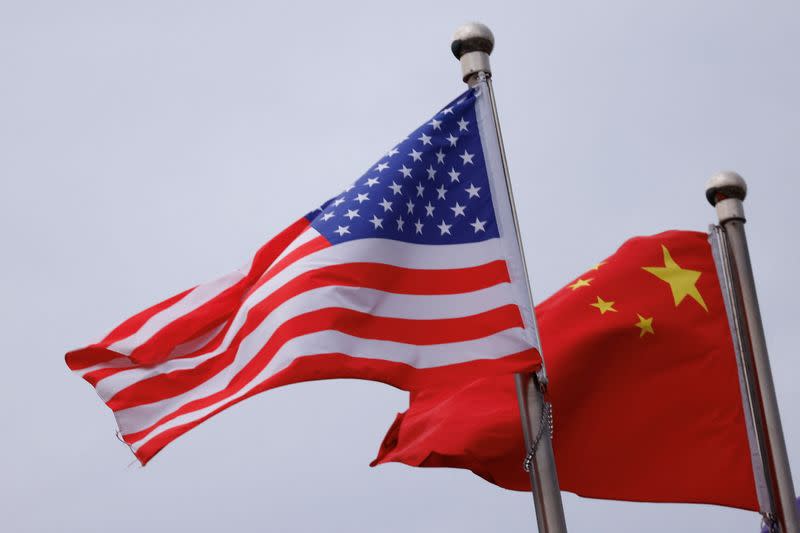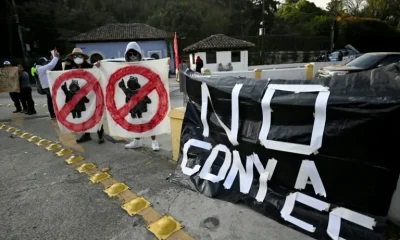International
World’s oldest man, John Tinniswood, dies at 112

John Tinniswood, an Englishman who was born in the same year the Titanic sank and survived two world wars and two global pandemics, passed away at the age of 112, Guinness World Records reported on Tuesday, months after recognizing him as the world’s oldest living man.
Tinniswood died on Monday at a care home in Southport, northwest England, surrounded by “music and love,” his family told Guinness World Records in a statement. “John had many qualities. He was intelligent, determined, brave, calm in any crisis, talented in mathematics, and a great conversationalist,” his family shared.
He was born in August 1912 in Liverpool, and met his wife, Blodwen, at a dance before marrying her in 1942 during World War II, when he served in the Royal Army Pay Corps, responsible for finances and food supplies.
Tinniswood, who is survived by a daughter, four grandchildren, and three great-grandchildren, later worked as an accountant in the oil industry before retiring at 60. His wife passed away in 1986.
Central America
Guatemala’s Attorney General Consuelo Porras Loses Bid for Constitutional Court Seat

Guatemala’s attorney general, Consuelo Porras, who has been sanctioned by the United States over corruption allegations, lost a key vote on Monday in which a public university selected two of the 10 magistrates for the country’s highest constitutional court. However, she could still seek a seat through another nominating body.
The election of five full magistrates and five alternates to the Corte de Constitucionalidad (CC) is taking place gradually over more than two months and is considered crucial in the ongoing struggle for control of Guatemala’s judiciary, which critics say has long been influenced by a political and economic elite accused of corruption.
According to results announced at a press conference, the governing council of the Universidad de San Carlos de Guatemala (USAC) rejected Porras, who had applied as either a full or alternate magistrate, and instead chose two candidates aligned with the university rector. The vote was held at a hotel in Antigua, about 35 kilometers from the capital.
Despite the setback, Porras — whose term as attorney general ends on May 16 — could still be nominated to the Constitutional Court by the Corte Suprema de Justicia, which appoints two magistrates. The remaining six are selected by the president, the bar association and Congress.
“It’s always a possibility,” the 72-year-old lawyer said days earlier when asked by reporters whether she would seek nomination through another institution if she lost the USAC vote.
Porras has been sanctioned by Washington and the European Union for allegedly attempting two years ago to block the inauguration of President Bernardo Arévalo and for pursuing legal actions against anti-corruption prosecutors, judges, journalists and social leaders since taking office in 2018.
The USAC vote was controversial because most members of the university’s governing council are serving beyond the expiration of their terms. Students, academics and social activists staged protests against Porras’ candidacy.
International
Florida judge sets 2027 trial in Trump’s $10 billion lawsuit against BBC

A federal judge in Florida has scheduled February 2027 for the trial in the lawsuit filed by U.S. President Donald Trump against the BBC, in which he is seeking $10 billion in damages for defamation.
Trump accuses the British broadcaster of airing a misleading edit of a speech he delivered on January 6, 2021, which, he says, made it appear that he explicitly urged his supporters to attack the U.S. Capitol in Washington.
The president filed the suit in December in federal court in Florida, alleging defamation and violations of a law governing business practices when the program was broadcast ahead of the 2024 election.
Trump is seeking $5 billion in damages for each of the two claims.
Lawyers for the BBC unsuccessfully asked the court to dismiss the case, arguing that Trump had not suffered a “legally recognizable harm,” since the investigative program Panorama, which included the edited footage, aired outside the United States.
International
Head-of-state diplomacy key to guiding China–U.S. ties, Beijing says

Head-of-state diplomacy plays an irreplaceable strategic guiding role in China–United States relations, Chinese Foreign Ministry spokesperson Lin Jian said on Thursday during a regular press briefing, when asked about high-level exchanges between the two sides.
Lin added that in a recent phone call, U.S. President Donald Trump once again expressed his intention to visit China in April, while Chinese President Xi Jinping reiterated his invitation.
Both sides remain in communication regarding the matter, the spokesperson said.
Lin noted that the essence of China–U.S. economic and trade ties lies in mutual benefit and win-win outcomes.
“Both parties should work together to implement the important consensus reached by the two heads of state, injecting greater certainty and stability into China–U.S. economic and trade cooperation, as well as into the global economy,” he said.
-

 International5 days ago
International5 days agoHead-of-state diplomacy key to guiding China–U.S. ties, Beijing says
-

 International5 days ago
International5 days agoFlorida judge sets 2027 trial in Trump’s $10 billion lawsuit against BBC
-

 Central America2 days ago
Central America2 days agoGuatemala’s president denounces MP raids during Constitutional Court election
-

 International5 days ago
International5 days agoTrump administration to end special immigration operation in Minnesota
-

 Central America2 days ago
Central America2 days agoTeens visit ETESAL substation to learn about responsible energy use
-

 Central America16 hours ago
Central America16 hours agoGuatemala’s Attorney General Consuelo Porras Loses Bid for Constitutional Court Seat


























